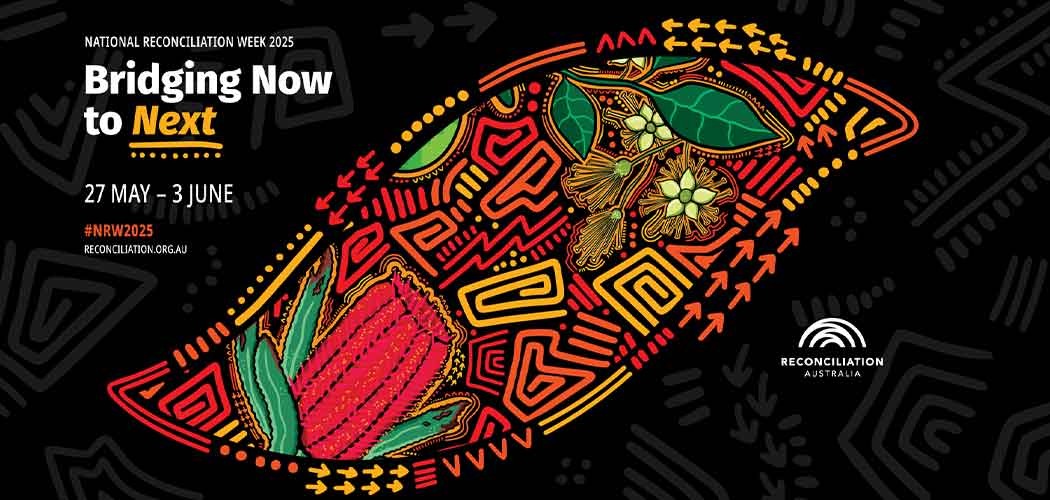This year’s National Reconciliation Week theme, Bridging Now to Next, urges us to look ahead and continue the push forward as past lessons guide us.
At a time when Australia faces uncertainty in its reconciliation journey, the National Reconciliation Week (NRW) theme calls on all Australians to step forward together.
Fittingly, Australia’s first formal truth-telling process will deliver its final report to the government and First Peoples’ Assembly of Victoria by 30 June 2025.
Yoorrook means ‘truth’
In 2021, Victoria made history by establishing the Yoorrook Justice Commission, an Aboriginal-led process with the powers of a Royal Commission. Yoorrook was charged with investigating all systemic injustices faced by First Peoples from the beginning of colonisation to today in Victoria.
Over the past four years, Commissioners and staff traversed the state to hear evidence; and completed inquiries into child protection, justice, land, education, health, and housing.
The report, due at the end of June, will mark a defining moment for Victoria, and perhaps for Australia, said Yoorrook Chair Professor Eleanor Bourke AM, in her recent address to the Melbourne Press Club this month.
“By learning about the past from First Peoples’ perspective, we can better understand how that past connects with the now. Some ask, why should people feel guilty about something that happened 200 years ago? Yoorrook’s goal has never been to encourage shame or guilt.
“Instead, listen and learn. Open your heart, and your mind, to our story, as told by First Peoples. Learn more about where you live. Understand that colonisation wasn’t an event two centuries ago, but a structure set in place back then which continues to impact First Peoples today.
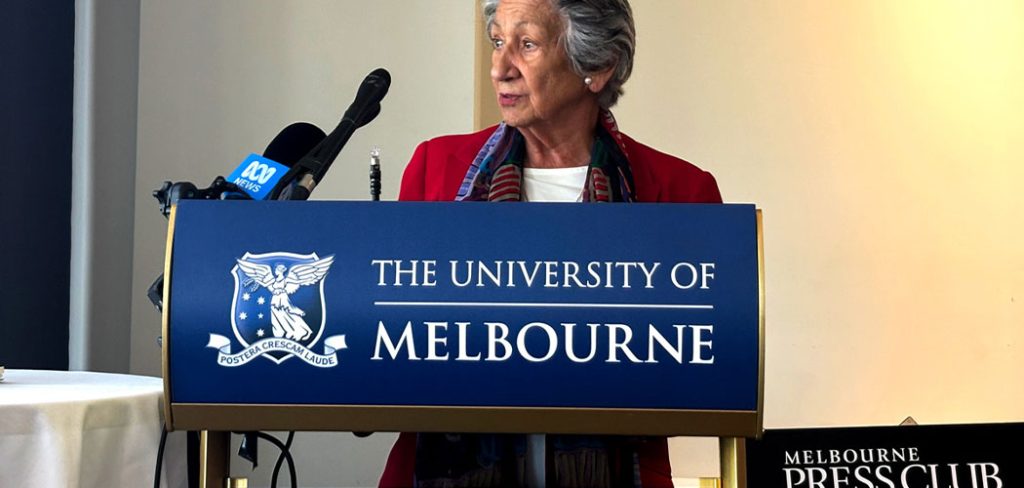
Truth-telling
Before colonisation, First Peoples had long been the sovereign custodians of this land. What followed was nothing short of devastation: conflict, mass killings, disease, rape, exclusion, linguicide, cultural erasure and environmental destruction. And later, the removal of children and policies of absorption and assimilation.
Forty-nine recorded massacres of First Peoples were carried out across the state of Victoria. From the mid 1800s, surviving First Peoples were confined to missions and reserves, where language and traditions were suppressed.
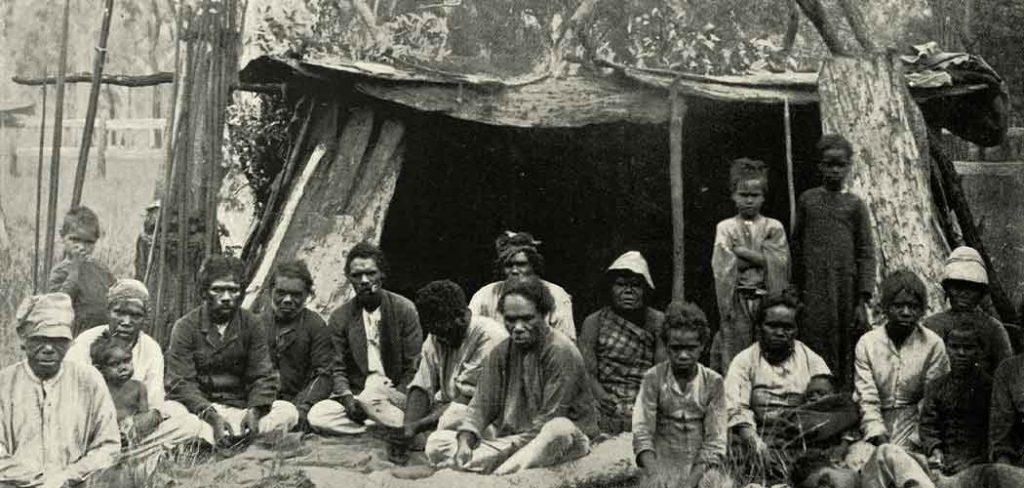
Though the language of law has changed, the practice of removing Aboriginal children continues today—at 20 times the rate of removal of other children in Victoria, said Professor Bourke.
“Aboriginal people experience catastrophic rates of incarceration and homelessness, are far less likely to finish school, and are far more likely to suffer poor health. As adults our people are 14 times more likely to be imprisoned than other Victorians, and our children are at least 10 times as likely to be in detention. We are not closing the gap anywhere near fast enough – a devastating phrase centred on deficit rather than possibility.”
Referendum on The Voice to Parliament
The referendum was a significant event during the term of the Commission. Political campaigning and media reporting opened the floodgates for racism, misinformation and fear-based narratives, said Professor Bourke.
“It was a difficult time for our people, regardless of their personal view on the referendum proposal. There were knock-on effects for Truth and Treaty too.”
National polling showed support for Treaty plummeted from 58% to 33% following the campaign, even though Voice and Treaty were independent processes.
“Suddenly, after years of progress in Victoria, Yoorrook was operating in a very different political and media environment. At the same time, other states and territories were rolling back their truth and treaty commitments, as did the federal government.
“During the referendum campaign, by far the most effective slogan to gain traction was ‘if you don’t know, vote no’. Finding out can be challenging. Where do you access reliable information? What sources can be trusted? A core purpose of truth-telling is to find out.”
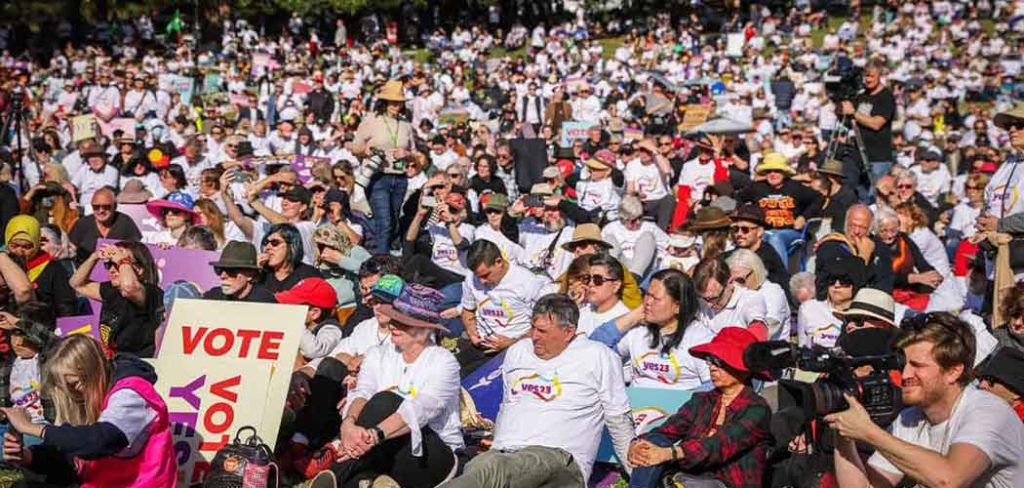
Encouragingly, the Victorian Government listened and learned throughout the process. Yoorrook heard 16 formal apologies from Victorian Government Ministers and officials about harm caused by the State to Aboriginal people in child protection, justice, policing, education, mental health, housing, land rights and environmental management.
However, without being backed up with action, the result has been the status quo, said Professor Bourke.
“There has, of course, been a long history of governments going back on their word when it comes to implementing meaningful and enduring changes to improve First Peoples’ lives.
“Inevitably, following an election, political parties reflect and recalibrate their approach. My hope is that the recent federal election will lead to a recommitment to bi-partisanship when it comes to First Peoples policies – at both federal and state levels.”
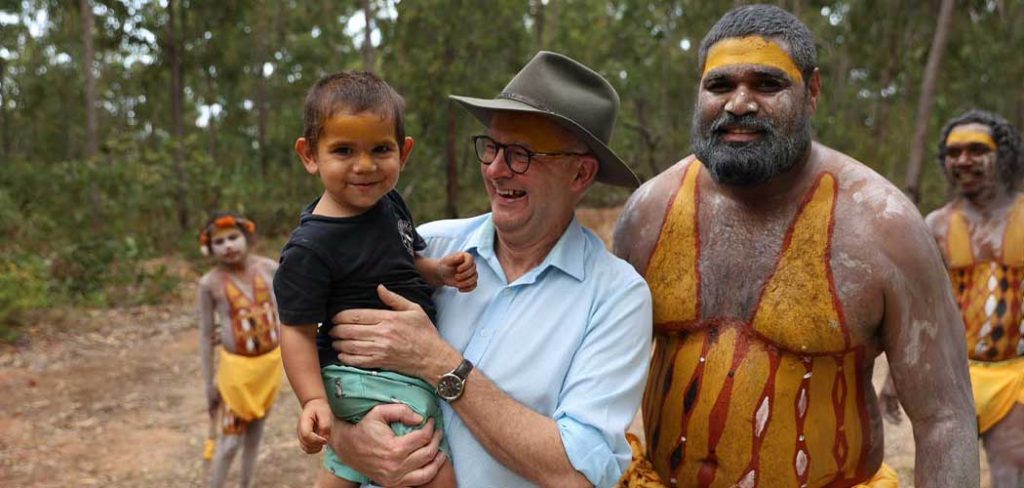
Report recommendations
In its final report, Yoorrook is expected to make more than 100 recommendations including significant reforms to broken systems, and a range of practical solutions to problems the government can implement now.
Yoorrook also wants to see improvements to education, such as the way history and other subjects are taught in school. This includes better teaching methods for First Peoples students and for all children to be educated about the true history of Victoria and its impacts on First Peoples.
There is also a pressing need for ongoing truth-telling to take place in some form after Yoorrook ends.
Treaty
Victoria leads the nation with the establishment of the First Peoples’ Assembly and the Treaty Authority, which is overseeing Treaty negotiations. Treaties have been successfully developed in many parts of the world including the United States, Canada and New Zealand.
Treaty is a common-sense approach to deal with important matters affecting First Peoples, said Professor Bourke.
“A Treaty is simply an agreement between a government and First Peoples to resolve past differences and work together for the future. A Treaty could give First Peoples the ability to make decisions about these issues as they relate to our people. It can help future-proof the progress we have made here in Victoria. Treaty is about how we move forward together.
Professor Bourke hopes to see the government’s acceptance of Yoorrook’s report and the official public record, and the successful negotiation of a Treaty in Victoria.
“Together I believe that we can build a new relationship based on truth, understanding and transformation.”
A public education campaign sharing stories of people heard by Yoorrook and will run until the end of June.
Yoorrook then will hand over its final reform report and official public record to the First Peoples’ Assembly and to the Victorian government.
For more information on the Yoorrook Justice Commission here
For more information on National Reconciliation Week here


